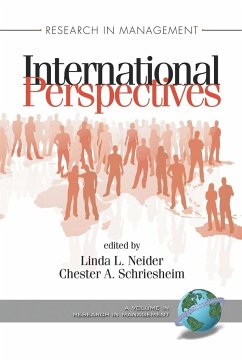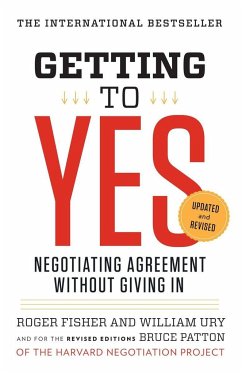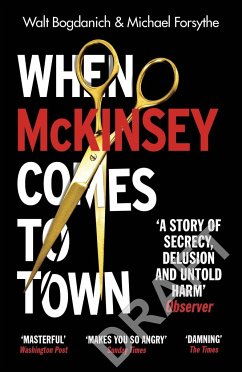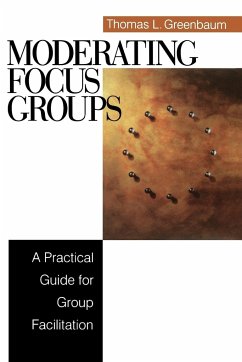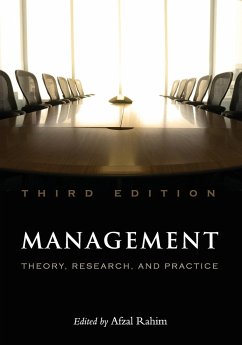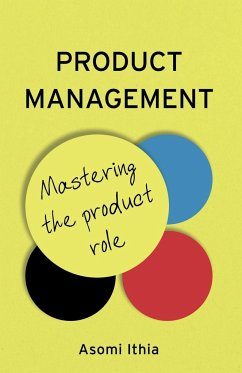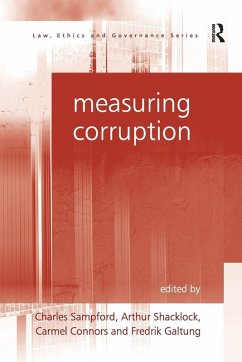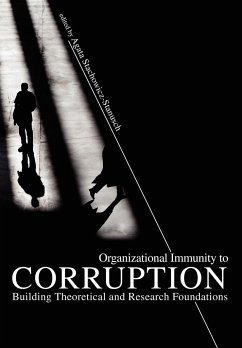
Organizational Immunity to Corruption
Building Theoretical and Research Foundations (PB)
Herausgeber: Stachowicz-Stanusch, Agata

PAYBACK Punkte
35 °P sammeln!
Why a book about corruption in organization now? The right time for this book has come for several reasons. First, the study of the effects of corruption in the workplace has become one of the 21st century's most exciting and burgeoning fields of research. Corruption and its variants have been studied across a number of disciplines, including psychology, sociology, economics, law, political science and of course management. The current discussion about corruption in organizational studies is one of the most growing, most fertile and perhaps most fascinating ones. Corruption is also a construct...
Why a book about corruption in organization now? The right time for this book has come for several reasons. First, the study of the effects of corruption in the workplace has become one of the 21st century's most exciting and burgeoning fields of research. Corruption and its variants have been studied across a number of disciplines, including psychology, sociology, economics, law, political science and of course management. The current discussion about corruption in organizational studies is one of the most growing, most fertile and perhaps most fascinating ones. Corruption is also a construct that is multilevel and can be understood as being created and supported by social and cultural interaction. As a result, an ongoing dialogue on corruption permeates the levels of analysis and numerous research domains in organizational studies. Thus I see a major opportunity and necessity to look on corruption from a multilevel and multicultural perspective. Second, in the global society of the world today where organizational boundaries are becoming increasingly transparent and during the Global Crisis, which has been rooted in unethical and corrupt behavior of large corporations, a deeper understanding of corruption, its forms, typologies, ways to increase organizational immunity and the best practices how to fight against corruption that are particularly significant and can also uncover it means that individuals, groups, organizations and whole societies can be used to sustain a sense of purpose, direction, meaning and the right way for creating a moral frame for the ethical behavior in the world of flux. Third, there is a growing pressure in the field of organizational studies and management to formulate theories that stimulate thinking of corruption, to change understanding of the phenomenon and, what is the most important, to carry out actions that produce valued outcomes. Addressing a wide range of topics about corruption in 33 chapters across 3 levels of analysis (understanding corruption, ways to increase organizational immunity to it and best practices / cases how to fight against corruption), this book brings together 48 leading scholars from all over the world. That makes it possible to look on corruption from a multilevel and multicultural perspective. This exciting book provides an authoritative and comprehensive overview of organizational corruption. It is an essential reference tool to carry out further research on corruption in organization. This book uncovers new theoretical insights that, I hope, will inspire new questions about corruption in organization; it also changes our understanding of the phenomenon and encourages further exploration and research.





